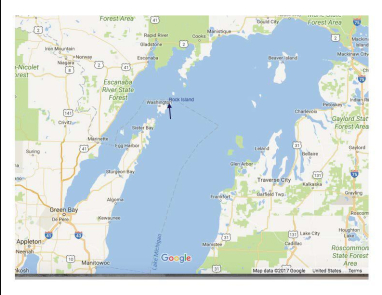
I’m flipping through a book I was sent, and I’m only a few pages in when Phileena Heurertz’s words stop me:
“According to Father Thomas Keating—a Cistercian monk—at the time of conversion we orient our lives by the question, ‘What can I do for God?’ Seems appropriate, right? But when we begin the spiritual journey our life is dramatically altered toward the question, ‘What can God do for me?’”
My guard is up already. A journey built around the question, “What can God do for me?” It feels self-centred. But she continues:
“This isn’t a narcissistic, exploitative question toward a disempowered God. It’s the exact opposite. This is the central question of a humble person who has awakened to their true self and to the awe-inspiring adoration of an extraordinary God.” (Pilgrimage of a Soul, p. 15-16)
For days I turn her words over in my mind. Could she be right? Is the direction of a deepening spiritual life a move from ‘What can I do for God?’ toward ‘What can God do for me?’ rather than the other way around?
As I ponder, I realize my journey has already been taking me in that direction. I’m discovering more and more deeply all the time how, in myself, I have nothing to offer. At first that felt shameful. Now it feels freeing. Jesus knows this truth, and wants me to know it too: “Apart from me you can do nothing” (John 15:5). He wants to set me free from trying to be God so I can enjoy being my own small self and letting God be his all-sufficient self in me. I’ve been getting more and more comfortable with my smallness, and with that settling into smallness has come a deepening trust and peace. But still. I wouldn’t have been daring enough to put it in those words. A shift from “What can I do for God?” to “What can God do for me?” the mark of a deepening faith? Really?
It seems God wants me to hear this, because he starts to speak in surround-sound. First I notice the Lord’s prayer.
“Our Father in heaven,
Reveal who you are.
Set the world right;
Do what’s best—as above, so below.
Keep us alive with three square meals.
Keep us forgiven with you and forgiving others.
Keep us safe from ourselves and the Devil.
You’re in charge!
You can do anything you want!
You’re ablaze in beauty!
Yes. Yes. Yes.” (Matthew 6:9-13, The Message)
The starting line for this prayer is that I can do none of this on my own. No matter how much I might want to do something for God, the truth is that there’s nothing I can do. I’m completely dependent on God—for food, forgiveness, setting the world right, and protection (even—or especially—from myself). All I can do is ask God to do in me and in the world, for me and for the world, what only He can do.
I’m starting to catch on. The question that startled me and started all this wondering is the heart of the gospel, and I’m a bit embarrassed that I need to hear it again. It’s like Jesus walked up beside me and I didn’t recognize him. But then I realize that this itself, this learning to recognize the gospel where it shows up and live it in all my daily moments, is one more place to practice the humbling truth that I can’t do even this work in me—I can only open myself to God to keep doing in me what only He can do. And even this opening, while a choice, is summoned and enabled by grace.
I pick up Emily P. Freeman’s Grace for the Good Girl to read the next few pages, and within two pages of where I pick up, she speaks of Mary’s choice to trust when the angel came to tell her she would conceive a child. “I am the Lord’s servant,” Mary answered. “May it be to me as you have said” (Luke 1:38 NIV). Emily writes,
“I love that Mary uses the word servant here, because it communicates that service is an act of faith. It isn’t me doing work for God, but it is me trusting God to do the work in me.” (p. 63)
Over the page, speaking now about Martha when Jesus comes to dinner, she writes,
“Martha’s desire to please clouded her willingness to trust. I understand this mistake of Martha’s perhaps more than any other. Given the choice to please God or to trust God, good girls become conflicted. We know we’re supposed to trust God, but trust is so intangible. It almost seems passive in the face of all there is to do. . . .
Choosing to please God sounds right at first, but it so often leads to a performing life, a girl trying to become good, a lean-on-myself theology. If I am trying to please God, it is difficult to trust God. But when I trust God, pleasing him is automatic” (64-5).
If I am trying to please God, it is difficult to trust God. This is the problem. There’s nothing wrong with wanting to please God—except when it keeps me from trusting Him. And it does that often enough that trying to please God might, for some of us, sometimes, actually be the opposite of trusting him. A fixation with pleasing God all too often pulls my focus away from Him and puts it on myself. I hear again the words that God has been speaking to me daily for at least a couple of years: “Carolyn Joy, let Me be God.”
Emily’s words ring in my head, “Anything we do to get life and identity outside of Christ is an idol, even service to Christ. He doesn’t want my service. He wants me. And from that life-giving relationship, ‘streams of living water will flow from within’ (John 7:38 NIV).” (p.65)
The surround-sound conversation seems to be fading (until the next time Jesus sneaks up on me unawares), and God leaves me with words spoken through the apostle Paul to ponder:
Share this:“The person who lives in right relationship with God does it by embracing what God arranges for him. Doing things for God is the opposite of entering into what God does for you” (Galatians 3:11 The Message).





